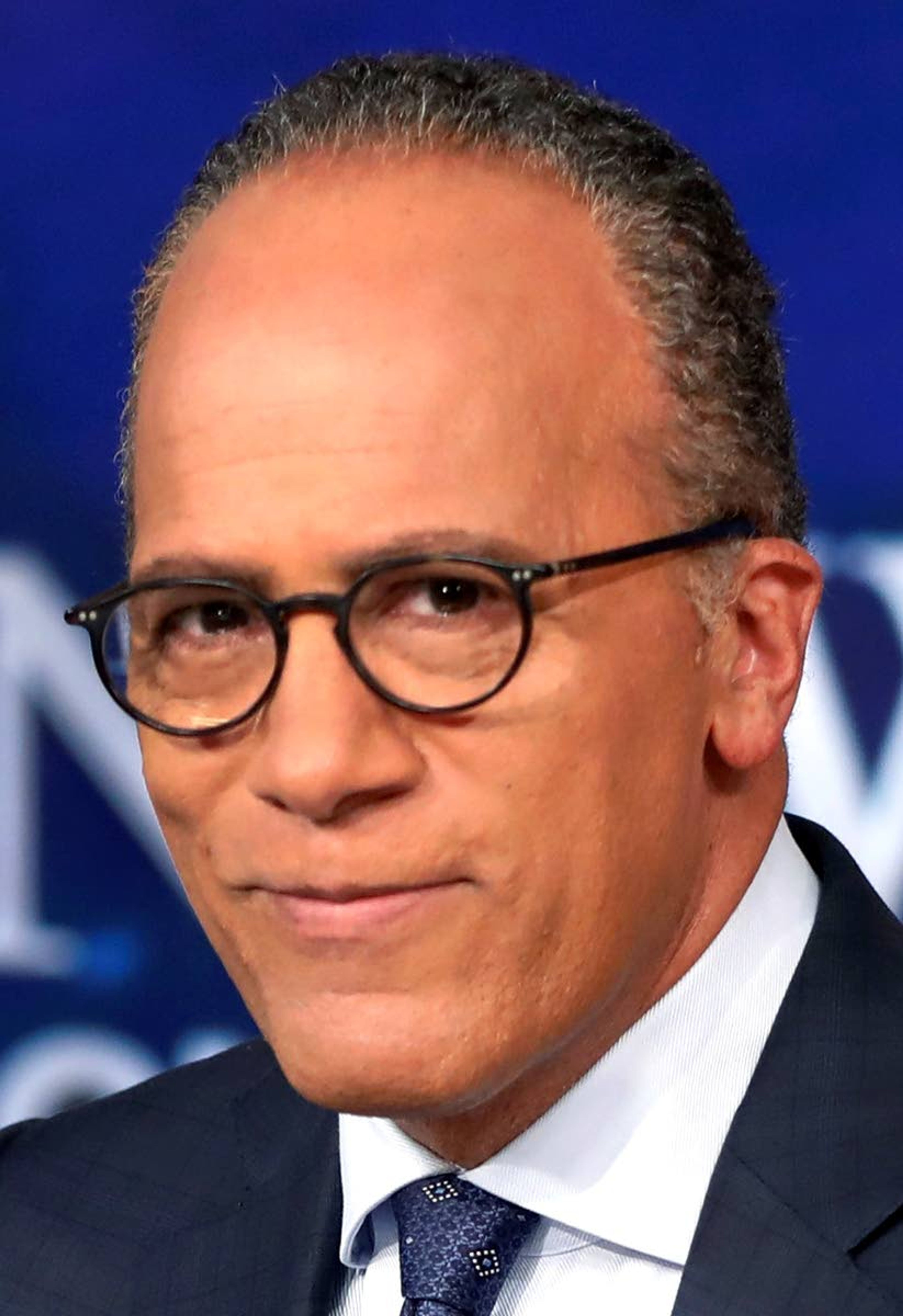Holt: Be ‘fair to the truth’
Separating fact from falsehoods is essential job of journalists
NBC “Nightly News” anchor Lester Holt’s comment this week that “fairness is overrated” raised the eyebrows of some political commentators and made headlines in right-leaning media outlets.
Yet Holt’s comments made Tuesday were consistent with the values journalists have been taught to uphold according to educators and students at Washington State University’s Edward R. Murrow College of Communication, where Holt earned a lifetime achievement award Tuesday.
In his acceptance speech for the award, Holt made the remark about fairness and immediately followed by saying “before you run off and tweet that headline, let me explain a bit.”
“The idea that we should give two sides equal weight and merit does not reflect the world we find ourselves in. That the sun sets in the west is a fact, and a contrary view does not deserve our time or attention,” Holt said. “Decisions to not give unsupported arguments equal time are not a dereliction of journalistic responsibility or some kind of agenda; in fact, it’s just the opposite.”
Holt went on to say providing a platform for misinformation, especially when it comes to issues related to health and safety, can be dangerous. He said journalists have a duty to be “fair to the truth” while holding those in power accountable. Especially in modern times of social media and an explosion of misinformation or “fake news,” Holt said it’s important for journalists to stand ready to push back against falsehoods.
Fox News media reporter Joseph A. Wulfson wrote Thursday: “NBC ‘Nightly News’ anchor Lester Holt is the latest high-profile TV journalist to join the growing trend of endorsing one-sided reporting.” Similar stories, focused on the “fairness is overrated” portion of Holt’s comments, appeared in the National Review Online and the Federalist.
“What Lester was saying (is) it’s our responsibility as journalists to vet these comments,” said WSU senior Daisy Zavala. “We shouldn’t be giving a platform to unsubstantiated claims and ludicrous ideas — that would just misinform people.”
“Something that Lester Holt did say is that it doesn’t matter what side it aligns with — if it’s the truth, then you report it,” agreed fellow senior Cameron Limes. “We teach that a lot here — if it’s true, then you report on it; it doesn’t matter where you stand on it.”
Murrow College Dean Bruce Pinkleton noted the media landscape has changed dramatically in the last couple of decades with the introduction of social media. Armed with a Facebook or Twitter account, Pinkleton said, “anybody can be a journalist, in a sense.”
He said some modern media organizations load their content with a particular political tilt, so it’s difficult to find news that is perceived as “balanced” by all parties.
“Frankly, it would be virtually impossible, because I can go look at media that supports either my liberal leanings or my conservative leanings, and they’re more than happy to tell me what I want to hear in the name of profits,” Pinkleton said. “The truth of the matter is, these broadcast outlets track their audiences very closely, so they are in business to make money. They make money, essentially, by selling audiences to advertisers.”
WSU Professor Benjamin Shores, who is also chairman of the school’s Department of Journalism and Media Production, said Holt makes a good point — and it’s not a new concept to journalism. Shores said training journalists to separate truth from falsehoods is central to the practice and has been going on for generations.
While it is essential to faithfully cover all sides of a story, he said journalists have to be careful not to repeat unsubstantiated claims in the name of “balance,” because it risks amplifying those false claims. Not only is it unethical to repeat narratives that are unsupported by evidence, he said it can also put the journalist and the organization that employs them at risk of legal action.
Amplifying demonstrably false claims also has repercussions that reach beyond the media world, Shores said, noting it’s a problem for American democracy.
“Misinformation is contributing to the life and death of people. Misinformation about vaccines has real implications, misinformation about climate change affects people’s lives, misinformation about the 2020 election led to the death of people at the U.S. Capitol,” he said. “These are not thought exercises in ivory towers; these are real lives that are being affected.”
Jackson can be reached at (208) 883-4636, or by email to sjackson@dnews.com.





